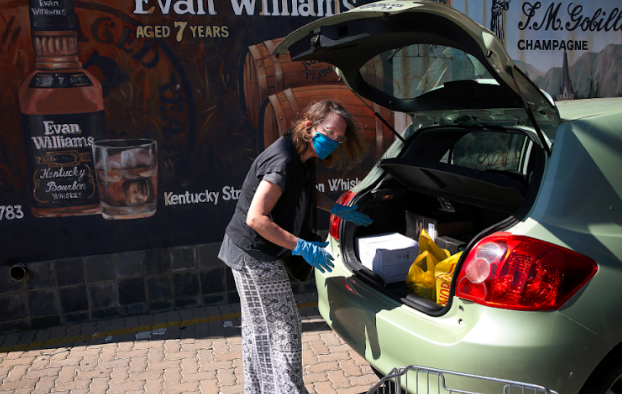Judge Norman Davis ruled in favour of Liberty Fighters Network, the Hola Bona Renaissance Foundation and attorney Reyno de Beer, after the group launched an urgent court challenge to the regulations.
The judge found that “little or in fact no regard was given to the extent of the impact of individual regulations on the constitutional rights of people and whether the extent of the limitation of their rights was justifiable or not”.
“The starting point was not ‘How can we as government limit constitutional rights in the least possible fashion whilst still protecting the inhabitants of South Africa?’ but rather ‘We will seek to achieve our goal by whatever means, irrespective of the costs, and we will determine, albeit incrementally, which constitutional rights you as the people of South Africa, may exercise,’” he said.
“The examples are too numerous to mention,” he said. “One need only to think of the irrationality in being allowed to buy a jersey but not undergarments or open-toed shoes and the criminalisation of many of the regulatory measures.”
Still, he said, some provisions passed muster.
“The cautionary regulations relating to education, prohibitions against evictions, initiation practices and the closures of night clubs and fitness centres, for example, as well as the closure of borders all appear to be rationally connected to the stated objectives,” Davis said.
Those regulations were unaffected by the order handed down.
The regulations around the ban on tobacco were also not affected, since those are subject to separate court challenges.
In terms of the remainder, the declaration of invalidity was suspended for 14 days, with the judge saying one must “be mindful of the fact that the Covid-19 danger is still with us … and to create a regulatory void might lead to unmitigated disaster and chaos”.
In the interim, he directed Minister of Cooperative Governance and Traditional Affairs Nkosazana Dlamini-Zuma, in consultation with the relevant ministers, to review, amend, and republish the regulations with “due consideration to the limitation each regulation has on the rights guaranteed in the Bill of Rights”.
Accountability Now’s Paul Hoffman SC said the judge had been careful to give government 14 days to remedy the lack of rationality of the measures he had declared unconstitutional and invalid.
“Either government is going to accept that Judge Davis is right and they are going to fix the regulations and make them rational or take the judgment on appeal,” Hoffman said.
He said in the case of the latter, there would likely be an argument about whether the relief granted should be suspended pending the outcome of the appeal.
Hoffman explained that the judgment did not have to be referred to the Constitutional Court for confirmation, though, because the high court was empowered to set aside regulations.
Cabinet said it would make a further statement once it had fully studied the judgment.
In a separate 170-page affidavit filed last month, the Democratic Alliance said the party opposed the “draconian” limitations on the rights of South Africans that came at great economic cost. However, this judgment is not related to the DA’s court case.
DA MP Glynnis Breytenbach said at the time: “I am advised that … the regime under the Covid regulations resembles a state of emergency, but is not subject to the same safeguards,” adding that Dlamini-Zuma had broad and intrusive regulatory powers that were not subject to parliamentary oversight.
She argued that, had Ramaphosa declared a state of emergency, this would have only empowered him for 21 days, unless an extension was given by National Assembly approval through a 60% majority vote.
“Under a state of emergency, the president may promulgate emergency regulations as are necessary of expedient to restore peace and order, but must make adequate provisions for terminating the state of emergency. The Cogta minister is not required by the DMA to describe how we will return to something resembling normality and in the Covid regulations, she has not.”
Breytenbach added that, under a state of emergency, Ramaphosa must table emergency regulations in parliament, while the Disaster Management Act did not require any parliamentary oversight.
“In short, the regime under Level 4 Covid regulations resemble a state of emergency in material respects, but it’s not subject to the same safeguards. The Covid regulations, and all of the directions issues under them, may thus be unconstitutional in their entirety.”
She challenged the court to consider the consequences of Ramaphosa’s decision, arguing that under a state of emergency, Sections 37(4) of the Constitution permitted legislation that derogated certain rights in the Bill of Rights. Lockdown regulations may not derogate any rights, she said.
Breytenbach said that, if the courts deemed these unlawful, irrational, unreasonable and disproportionate, “the court is required to declare them to be unlawful and set them aside, and is empowered by Section 172(1)(b) of the Constitution to make any other order that is just and equitable”.
Article by TheCitizen


















